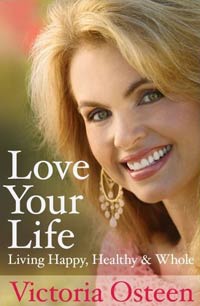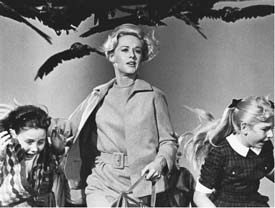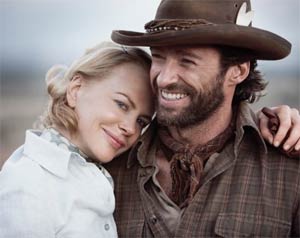 Victoria Osteen, a young woman from Houston, Texas, is a devout Christian and mother of two who, by virtue of being married to one of the country’s most successful preachers, Joel Osteen, has access to an audience mind-bogglingly vaster than the 3 million or so folks available to Jesus–counting Jews, Romans, Greeks, Samarians, and the rest of the lot living in Palestine in the first century.
Victoria Osteen, a young woman from Houston, Texas, is a devout Christian and mother of two who, by virtue of being married to one of the country’s most successful preachers, Joel Osteen, has access to an audience mind-bogglingly vaster than the 3 million or so folks available to Jesus–counting Jews, Romans, Greeks, Samarians, and the rest of the lot living in Palestine in the first century.
What Osteen chose to do with this awesome power is to write a book, “Love Your Life: Living Happy, Healthy & Whole,” released earlier this month by Free Press. While it’s likely Jesus would have been confused by the entire prospect of Victoria Osteen, it’s hard to argue with a message as positive, temperate, and sensible as hers.
Like her husband, whose preaching can stir even other Christians to fits of scorn and alarm for its positive glow, Victoria Osteen dwells not on sin or godly retribution, but on the implicit promise of peace and happiness in Christ’s teachings. Mrs. Osteen stays away from Mr. Osteen’s controversial suggestions that God is looking out for our financial security, but she’s just as focused on building up her audience’s gratitude, the better to see the beauty of the moment. “If you’re not careful, you can fall into a destructive cycle of self-pity,” she warns. She exhorts women not to condemn their husbands for not vacuuming–or even seeing the dust kittens under the bed–but to keep their eyes on higher things, like why they married the lout in the first place.
It’s easy to dismiss a book that makes parables out of Christmas basket snafus and dust kittens. “Love Your Life,” like a lot of Christian self-help books, exposes itself to the charge that Christ will not return on a cloud of fire to check under our sofas (and yes, Jesus’ preferred subtitle might have been “But Be Prepared to Lose It”). But the Christ of the gospel often showed affection for the mundane concerns of household life, like what to serve unexpected guests, turning them into some of his most enduring lessons. (Look up the story that ends in, “Seek and you will find; knock and the door will be opened to you.”)
In Osteen’s book, there is also an entirely Christian insistence on looking at the real impact of your actions on other people, instead of being guided by abstract marital, social, or personal rules. “Give them a break,” Osteen says, and give yourself a break while you’re at it. It’s not “the wages of sin is death,” but it might help more people sort through their immediate problems. As a pastor’s wife, Osteen seems to have seen enough of her congregation’s lives to know that this is job one.
This brings us back to the awesome power this young Houstonian has been granted. Whether you believe that power has come from God, from the marketplace, or dumb luck, Osteen acquits herself respectably by telling people to do their best and then be proud of who they are. It’s a “First, Do No Harm” approach that has worked for doctors for centuries.


